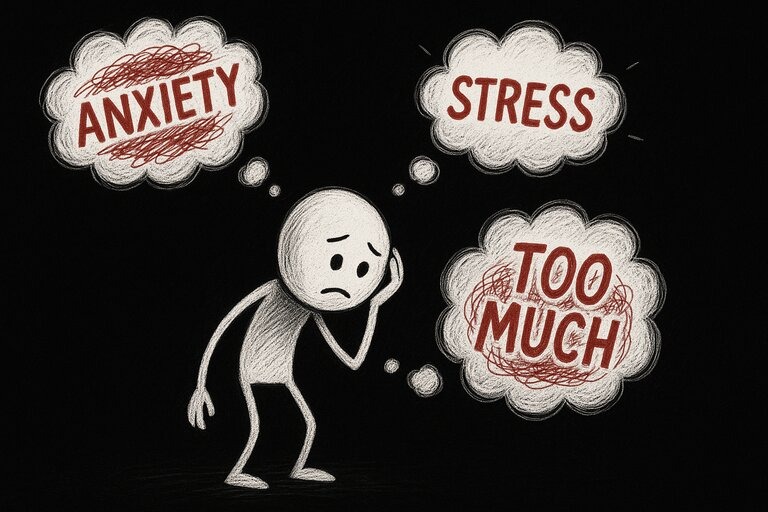
Understanding the Link Between Anxiety and Loneliness
Many people experience anxiety at some point in their lives, but for some, it can lead to profound feelings of loneliness and isolation.
This relationship between anxiety and loneliness can create a vicious cycle, where heightened anxiety prompts social withdrawal, which in turn increases feelings of loneliness.
Recognizing this connection is crucial for anyone seeking to understand their mental health and well-being.
In 'How does anxiety cause loneliness?', the discussion dives into the impacts of anxiety on social isolation, exploring key insights that sparked deeper analysis on our end.
Why Does Anxiety Lead to Isolation?
One of the reasons anxiety can result in isolation is the state of hypervigilance that often accompanies it. Those dealing with anxiety may feel as if they're constantly scanning their environments for potential threats, reacting more intensely to seemingly benign situations.
This heightened awareness can become mentally and physically exhausting, leading individuals to shrink their social circles to maintain a sense of control and comfort.
By retreating, they may feel safer, but this behavior ultimately deepens feelings of loneliness.
Interpretation Bias: Viewing Social Situations Negatively
Anxiety also introduces an interpretation bias, where individuals are inclined to view ambiguous social situations negatively. When anxiety clouds judgment, someone might misinterpret friendly gestures or innocent comments as critiques or threats.
This misinterpretation can create a barrier to social engagement, reinforcing a cycle where the anxious individual avoids social situations altogether, fearing the worst outcomes.
The Good News: Treatability of Anxiety
The positive aspect of this intricate relationship is that anxiety disorders are among the most treatable psychiatric conditions. Even if you feel trapped in a cycle of anxiety and isolation, it’s crucial to remember that hope exists for change.
Effective social anxiety treatment can help individuals break free from this cycle. Therapeutic modalities can aid in retraining your anxious brain to respond differently to stressors.
The Importance of Social Connections
Attaining genuine, fulfilling social connections is essential for improving mental health. For busy parents and active seniors in Sacramento, finding ways to reconnect with the community or to cherish existing relationships can foster a sense of belonging and purpose.
Understanding that feeling lonely while anxious is valid can unleash the courage needed to reach out for help or initiate contact with others.
Practical Strategies for Coping with Anxiety
Learning how to cope with anxiety involves a combination of self-care strategies and professional guidance. Here are a few strategies to consider:
Mindfulness Practices: Techniques such as meditation and deep breathing can help individuals ground themselves in moments of heightened anxiety.
Social Engagement: Start small; even a quick chat with a neighbor can help rebuild your social connections without overwhelming yourself.
Seek Professional Support: Consulting a therapist specialized in anxiety disorders can provide tailored coping strategies and support to overcome isolation.
Future Predictions: The Path Towards Healing
As awareness regarding mental health increases, more robust social platforms and support systems will emerge, fostering community connections and shared experiences.
Healthcare innovations, including online therapy and mental health workshops, are paving the way for individuals to learn coping mechanisms and retrain their anxious brains effectively.
Emotional Perspectives: How This Affects You
For those in the Sacramento area, navigating anxiety may also burden feelings of inadequacy or fear of judgment. Understanding the interconnection between anxiety and isolation can liberate you from the misconception that you are alone in feeling this way.
Embracing vulnerability can open doors to healing and connection, leading you toward a more balanced emotional state.
In conclusion, while anxiety can lead to intensified feelings of loneliness and isolation, it's vital to recognize that you're not alone. With the right tools and supports, change is possible.
Understanding how anxiety affects social interactions, coupled with actionable strategies for improvement, can empower you to reconnect and embrace life beyond anxiety.
Don't hesitate to reach out to mental health resources in your community, as they can play a pivotal role in your journey to self-discovery and emotional wellness.
 Add Row
Add Row  Add
Add 





 Add Row
Add Row  Add
Add
Write A Comment